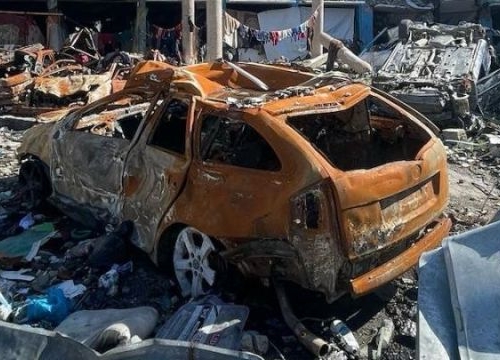Gaza and the Battle for Humanity: How International Law Provides Meaning to Violence
Event
The mandate holders of the Special Procedures of the Human Rights Council have spoken with one loud and clear collective voice on the current war in Gaza, as has the United Nations Committee on the Rights of the Child. They were the first in the UN system to raise the alarm that the state of Israel was committing war crimes and crimes against humanity against the Palestinian people, amounting to a risk of genocide. This view was not only informed by the spectacular bombardment of Gaza but also by the slow suffering and death caused by depriving civilians of what is indispensable to their survival such as food, water, housing and health care.
At this event, co-hosted by our Geneva Human Rights Platform and the Geneva Graduate Institute's Global Governance Centre and International Law Department, several UN experts will provide their perspective on what is at stake when framing the ongoing spectacular and slow violence against Palestinians in Gaza as a war a crime, a crime against humanity, or genocide. What type of international legal conceptualizations will keep the political space open for peace and the fulfilment of the Palestinian people’s right to self-determination?
Opening Remarks
- Andrew Clapham, Professor of International Law, Geneva Graduate Institute and Member of the Geneva Academy Faculty
MODERATOR
- Heba Aly, Journalist, Expert on Humanitarian Crisis and the Middle-East
PANELISTS
- Pedro Arrojo Agudo, Special Rapporteur on the Rights to Water and Sanitation
- Michael Fakhri, Special Rapporteur on the Right to Food
- Ann Marie Skelton, Chairperson of the UN Committee on the Rights of the Child
- Balakrishnan Rajagopal, Special Rapporteur on the Right to Adequate Housing
Disclaimer
This event may be filmed, recorded and/or photographed on behalf of the Geneva Academy. The Geneva Academy may use these recordings and photographs for internal and external communications for information, teaching and research purposes, and/or promotion and illustration through its various media channels (website, social media, newsletters, annual report, etc.).
By participating in this event, you are agreeing to the possibility of appearing in the aforementioned films, recordings and photographs, and their subsequent use by the Geneva Academy.








